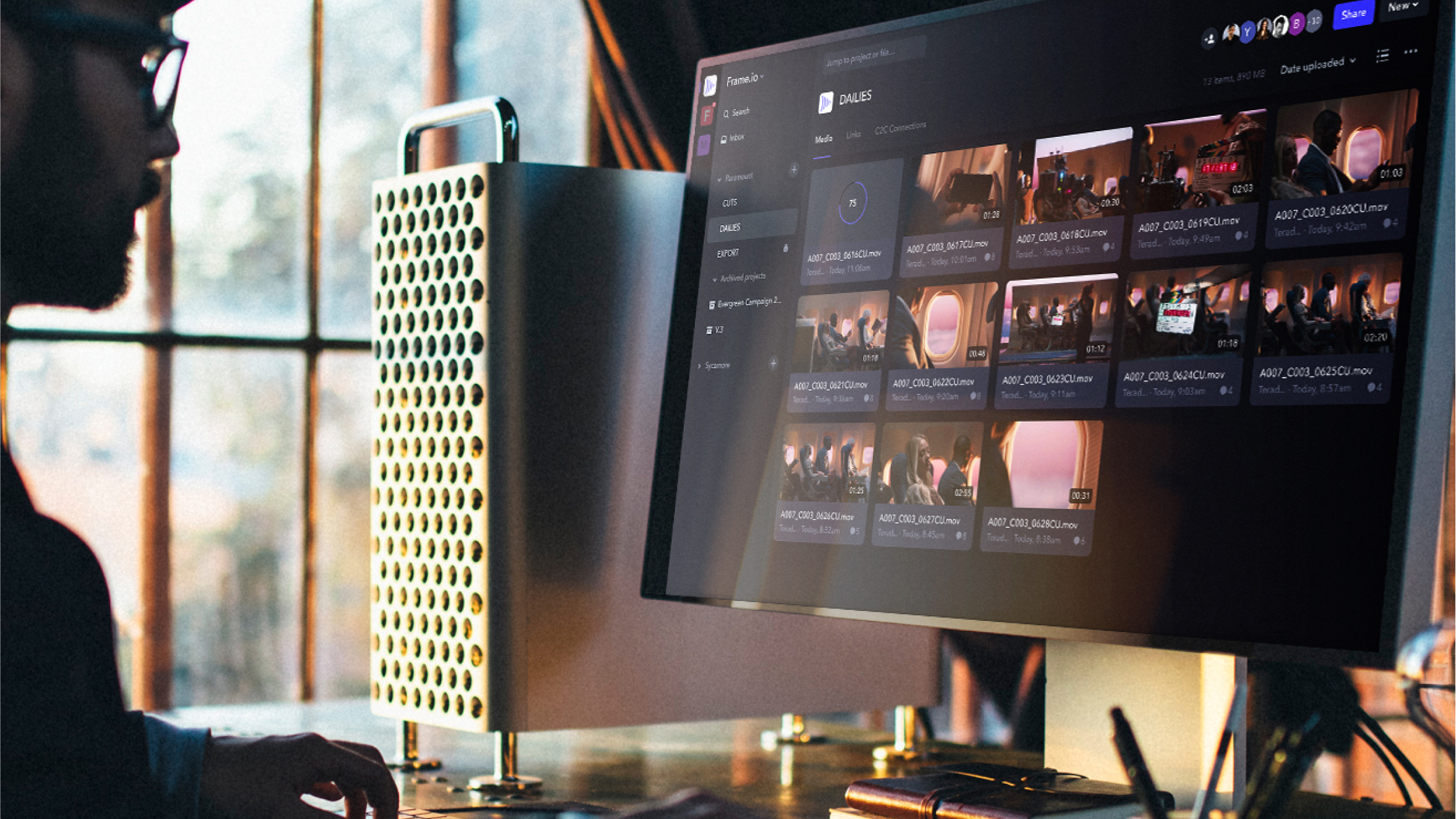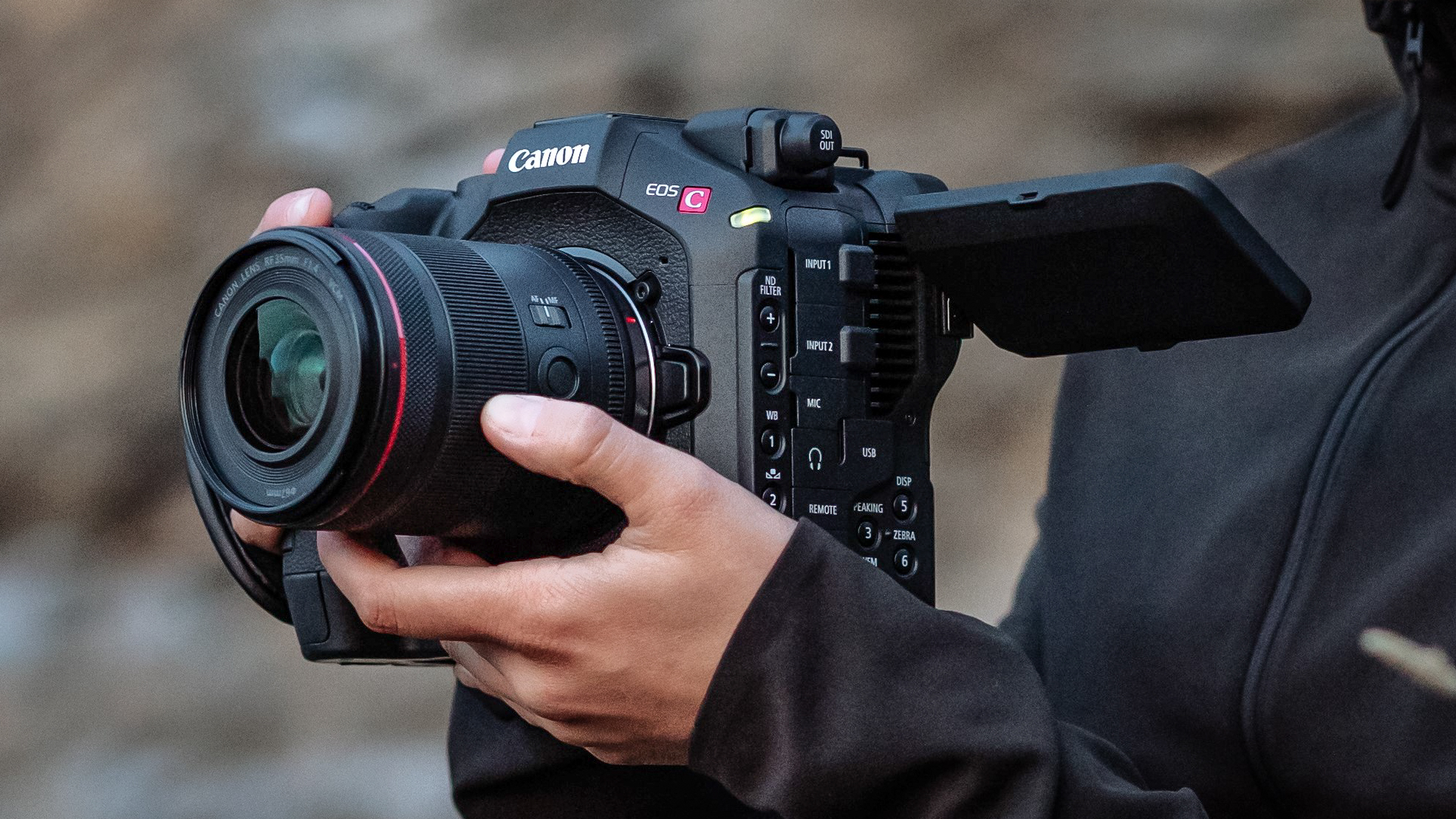
Following uptake by both Panasonic and Fujifilm, three more major camera brands have joined Adobe’s Frame.io C2C network, enabling automatic cloud backup straight from the camera – and now for the first time, photos are immediately synced directly into Lightroom.
What is C2C and what is Frame.io I hear many of you asking – let’s unpack. C2C stands for ‘Camera to Cloud’, and is the general term for uploading footage directly from a camera to online cloud storage. There are several services for doing this – most of the camera companies have their own version of C2C, and some cameras can upload directly to online storage such as Google Drive. However, Adobe’s Frame.io is slowly becoming the industry standard for C2C uploads with its well-recognized performance and collaboration tools.
The latest version – Frame.io v4 – has just been released at Adobe’s Max event in Miami, and it not only brings a huge heap of visual improvements to Frame.io, it also adds Lightroom integrations and expands onto more cameras from Canon, Nikon, and Leica.
Canon
The first cameras from Canon to get Camera to Cloud compatibility with Frame.io will be the Canon EOS C400 and Canon EOS C80. The newest cameras in Canon's cinema lineup, the EOS C400 and C80 are both full-frame RF-mount cinema cameras featuring stacked backside-illuminated (BSI) sensors offering 6K video recording and 16 stops of dynamic range, along with a triple base ISO. And you don't have long to wait – with C2C support planned for later this year via a firmware update.
Nikon
Nikon will also be partnering with Frame.io for C2C on some of its most recent pro models – the Nikon Z6 III, the Nikon Z8, and the Nikon Z9. These are both photographic powerhouses with their lightning-fast shutter speeds, but they are also powerful video cameras too. Frame.io is capable of both photo and video uploads, so these hybrid cameras are perfectly suited. The cameras will be updated via firmware planned for the first half of 2025.
Leica
Leica will add Frame.io's C2C functionality to its flagship Leica SL3 camera. This is Leica's most professional model, with a pixel-packed 60MP sensor, the camera is also capable of 8K video and has a much-improved autofocus system, now with subject recognition and tracking. Frame.io Camera to Cloud functionality will be available via a firmware update accessible through the Leica FOTOS app or on the Leica website in 2025. As yet there is no information if this functionality will be coming to other Leica flagship cameras like the Leica Q3 or the Leica M11.

Adobe Lightroom meets Frame.io
While previously only available in beta, Frame.io integration into Adobe Lightroom is now available for all. Photographers who want to use Frame.io's C2C functionality in their cameras can now seamlessly sync images directly to the cloud and have them appear in Lightroom. For added speed and control, you can also choose which file types are uploaded, so if you shoot RAW and JPEG, then uploading the smaller JPEG files only will make for a speedier experience if a remote team needs to review shots quickly.
You can also edit photos synced from Frame.io in Lightroom and push the edited version back to the server with all the edits intact. Using Frame.io's collaboration tools, other people on the project can then comment and mark up photos for approval or further edits – all in real-time.
If you want to try out Lightroom's Frame.io connection for yourself, you will need Adobe's Photography plan, and you will need to sign up separately to Frame.io. On the Frame.io site, you can then add your Lightroom account and set up syncing between the two.
Once you have your content off your camera, you're going to need the best photo editing software or the best video editing software – check out the best options in our guides.







